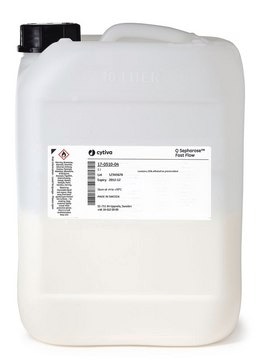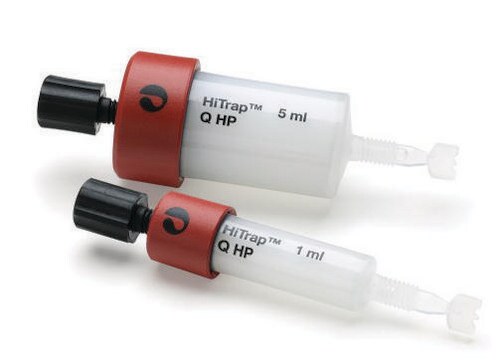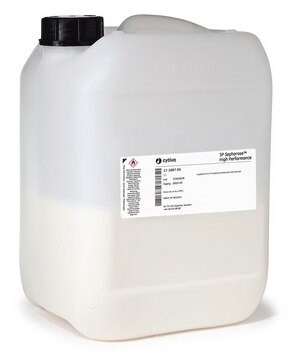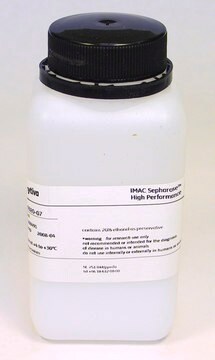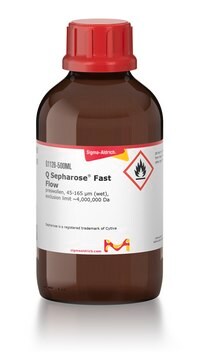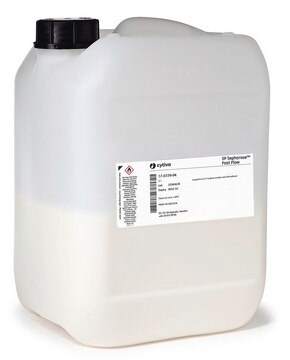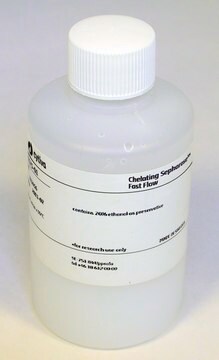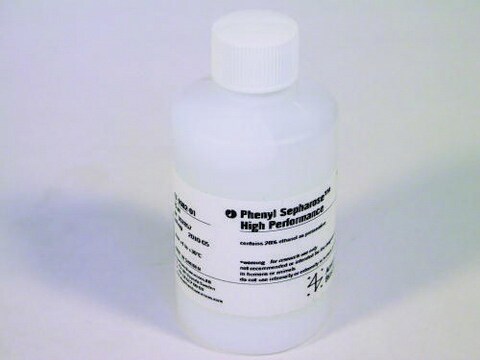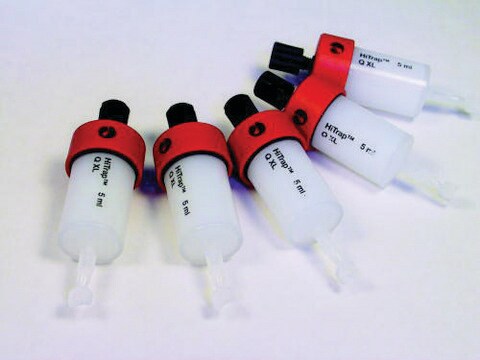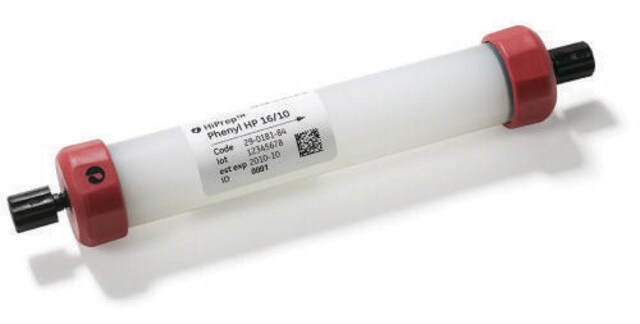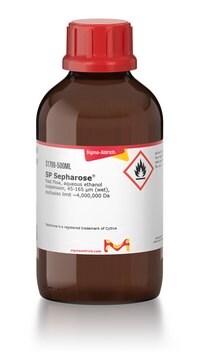GE17-1014-01
Q Sepharose™ High Performance
Cytiva 17-1014-01, pack of 75 mL
Synonym(s):
Q Sepharose Resin
About This Item
Recommended Products
ligand
quaternary amine
description
Ion Exchanger Type (value)
packaging
pack of 75 mL
manufacturer/tradename
Cytiva 17-1014-01
matrix
6% cross-linked agarose
particle size
24-44 μm
avg. part. size
34 μm
cleaning in place
1-14
working range
2-12
suitability
suitable for bioprocess medium
Related Categories
General description
Q Sepharose High Performance is composed of crosslinked agarose beads with a mean diameter of 34 µm, modified with quaternary (Q) strong anion exchange groups. It is designed for intermediate purification and polishing applications and to be used when resolution and capacity have priority. Q Sepharose High Performance has high chemical stability and withstands effective CIP/sanitization protocols using sodium hydroxide.
Q Sepharose High Performance is available in a range of different bulk pack sizes and convenient pre-packed formats for easy scale-up and process development. As member of the BioProcess resins range, Q Sepharose High Performance meets industrial demands with security of supply and comprehensive technical and regulatory support.
Application
Features and Benefits
- Strong anion exchanger for intermediate and final polishing steps
- High resolution, high capacity separation with high recovery
- High chemical stability for effective CIP/sanitization
- BioProcess resin supported for industrial applications and well-established in approved processes
- The hydrophilic nature of the base matrix ensures low levels of non-specific binding leading to low levels of host cell-derived impurities in the elution pool.
Storage and Stability
Analysis Note
Legal Information
Signal Word
Warning
Hazard Statements
Precautionary Statements
Storage Class Code
3 - Flammable liquids
Certificates of Analysis (COA)
Search for Certificates of Analysis (COA) by entering the products Lot/Batch Number. Lot and Batch Numbers can be found on a product’s label following the words ‘Lot’ or ‘Batch’.
Already Own This Product?
Find documentation for the products that you have recently purchased in the Document Library.
Customers Also Viewed
Articles
This page shows Hydrophobic Interaction Chromatography (HIC) in a purification strategy.
Here the correct ways for Column, Media and Sample preparation for Hydrophobic Interaction Chomatography (HIC) with Cytiva media are detailed, including sample application, load volume and temperature
This page describes principles and standard conditions for different purification techniques of histidine-tagged proteins using Cytiva products.
Protocols
While ligands contribute significantly to the degree of hydrophobicity of a medium, the matrix can also influence the final selectivity. Chromatography media for hydrophobic interaction are made from porous matrices, chosen for their physical stability, their chemical resistance to stringent cleaning conditions and their low level of non-specific interaction.
This page discusses how to do a purification with SOURCE™ media from GE Healthcare
This page discusses various aspects of sample preparation for chromatographic purification.
This page covers detailed information on cleaning procedures and recommended flow for column cleaning.
Our team of scientists has experience in all areas of research including Life Science, Material Science, Chemical Synthesis, Chromatography, Analytical and many others.
Contact Technical Service